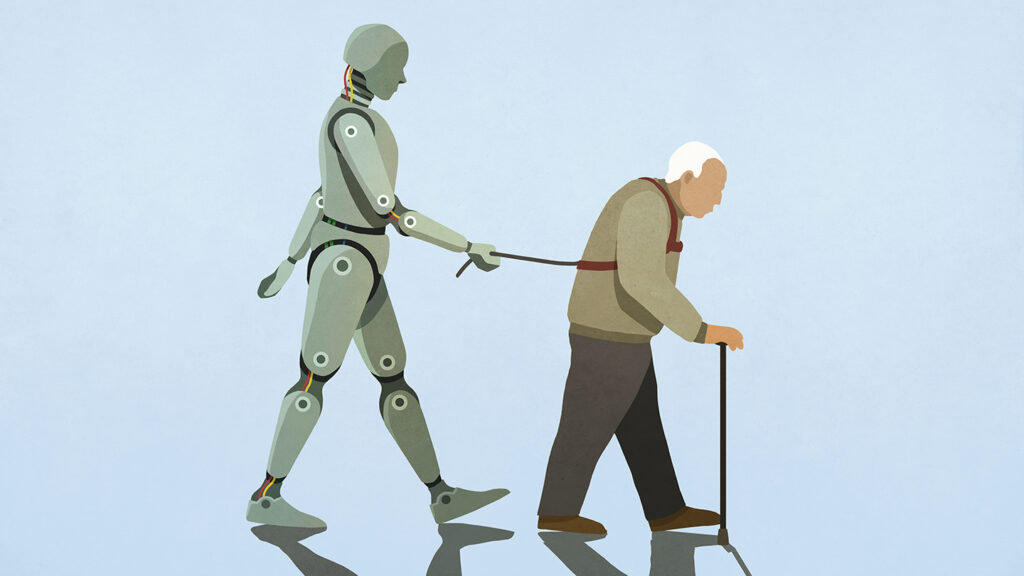
Despite stories that senior livng and care robots are dominating on the other side of the Pacific, the promise of such technology thus far has been severely overstated, according to a new report in The Atlantic.
The feature, which included interviews with long-term care and robotics experts both for and against the proliferation of robots in such settings, highlighted several criticisms of the technology. Robot skeptics portrayed the technology as cumbersome and overhyped.
Most significantly, some assistive robots can create extra work for caregivers and raise new safety issues among residents, the report stated.
The article also threw some cold water on existing research that robots improved older adults’ well-being and socialization, including in countries such as Japan, where robots pets have been thought to be widely accepted.
The report cited a meta-analysis that claimed that existing literature was based on flawed methodology. At least one study, from 2022, argued that socially assistive robots had no effect on cognition or quality of life for ollder adults living with dementia.
One caveat is that The Atlantic report focuses heavily on robots that are meant to address loneliness and isolation. Interview subjects also were asked about very specific robotic models; smaller robots, with more targeted conversational abilities and user-friendly features, have come out in the past year.
In addition, several robotic tools have been introduced over the past few years for more routine, practical purposes, such as cleaning, security and delivering items such as packages, medication and even meals.
Those latter robots, like their more social counterparts, have been developed to fill a need caused by staffing shortages in long-term care facilities. But rather than replacing caregivers, those robotic assistants have been marketed as helping existing staff members by freeing them to take on the more necessary role of interacting with residents and addressing health concerns.
One robotics developer that has been very busy in the senior living and care space, Intuition Robotics’ ElliQ, released promising data last year based on a partnership program with the New York State Office for Aging. The program showed that older adults who received the robotic companion had very positive interactions.
Rather than imbue ElliQ with humanoid features or traits, the developers have tried to emphasize the robot’s digital nature, distinguishing it from caregivers or even live pets, Intuition executives told the McKnight’s Tech Daily.
The company has created a new scale to evaluate a social robots’ impact as part of new data released earlier this month.


